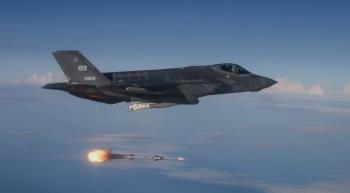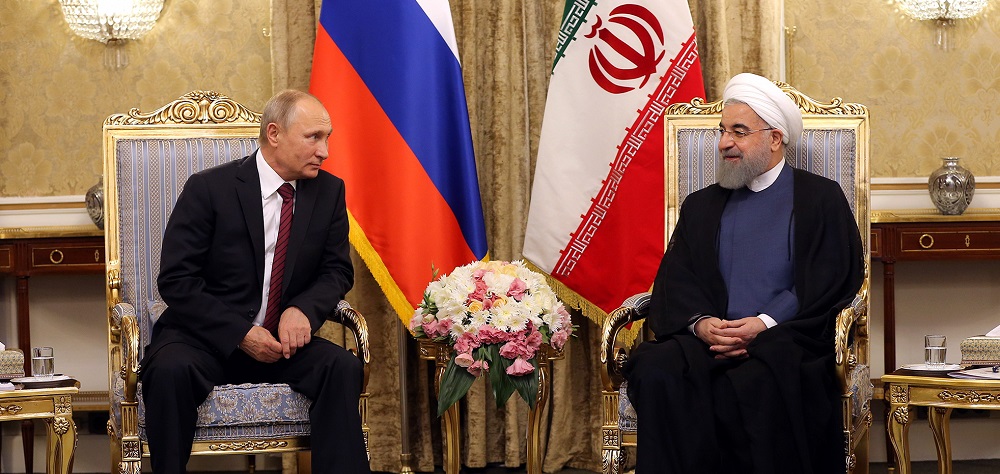Alwaght- The Syrian crisis has now entered the new stage of reconstruction and complicated political process after the Damascus government and its allies successfully retook territories from the foreign-backed terrorists and stabilized the security situation.
Meanwhile, the way of continuation of the military cooperation of the Syrian government with the allied countries, especially in relation to the security pacts, is becoming a window through which the Western media put strains on Damascus and seek to fuel divisions between it and the supporters.
The Kremlin action of appointing “Special Envoy of the Russian President for Developing Relations with Syria” last week instead of choosing an ambassador stirred waves of speculations by the media about emerging division between Damascus and Moscow. The Western media during their focus on the issue also talked about the Russian “considerations” on the future of the relations between Syria and Iran and the regulation of the Russian relations with Tehran and Tel Aviv in the Syrian issue.
To get a more accurate picture of the case, Alwaght has talked to Shoaib Bahman, an expert on Russia and Caucasus affairs.
The first question was why Putin had appointed a special envoy rather than an ambassador and if the Syrian government should get a specific message from the move.
Mr Bahman answered that in the past Russia had a special representative in Syria, too, and this is not a new approach. Sergei Ryabkov, the current deputy foreign minister, once held this position in Syria. Until recently, Alexander Lavrentiev held the role in various meetings and negotiations on Syria.
“Now that the Syrian situation is transferring from military phase to security and reconstruction phase, principally a resident representative should be named so that he can be more influential. In the current conditions that there may be not much need for foreign trips of a Putin envoy to talk Syrian issues with other players in other countries if a single representative holds all of Putin powers in Syria and reside in the Arab country, he can be more efficient in his mission.”
Mr Bahman continued that from the viewpoint of the Russians, Syria has moved to a new stage maybe it could be called the construction stage. For Russia to be strongly present in this stage, Moscow needs to organize its policies. Naming a representative to Russia in Syria is not new with regard to the country’s home and foreign issues. Syria occupies a special place in the Russian foreign policy.
“So, since the beginning of the Russian military intervention against the foreign-backed terrorists, a special envoy was active in Syria. It is nothing new and carries no specific message to Damascus.”
Does Kremlin, as the Western media claim, look at the Syrian President Bashar al-Assad as a burned figure with whom Putin should keep a distance to save the Russian interests in Syria? Alwaght asked.
“What we heard in the past few weeks from the Arab and Western media about Russian disavowal of the Syrian President Bashar al-Assad is based on their wishes rather than reality and is part of physiological warfare against Moscow. Over the past years, we witnessed such warfare against the Russian military presence in Syria, the Russian cooperation with Syria, and also the Russian cooperation with Iran in the Syrian crisis. To make this physiological warfare look plausible, recently hackers infiltrated the website of the Russian International Affairs Council and published an article attributed to the council’s president about so-called Russian policy shift in Syria and Moscow’s efforts to find an alternative to President Assad.”
The Russian affairs expert added that we know that this is physiological warfare as we know that the Russian officials keep reiterating that Moscow’s policy toward Damascus has not changed. Actually, neither Russia nor even the Western powers that waged a terror war on Syria see no alternative to President Assad in Syria. The governments and officials that once pushed for Assad’s stepping down now stopped their efforts. They are now sure that the Syrian political structure and atmosphere are far from accepting a figure other than President Assad.
“Neither Russia’s nor any other country’s policy currently is in favor of the change of the Syrian political system or the very person of the president. So, in the Russian viewpoint, Assad is not a burned figure and will continue his job as the legitimate president of Syria. The next elections will determine his future.
Another question was about the extent of the Russian Syria strategy change. Mr Bahman replied that there is no serious change in the Russian major strategy in Syria. Syria is transferring to the reconstruction stage and except for Idlib that is still a scene to tensions and a standoff on its future other parts of Syria have reached relative stability. Therefore, the Russians know that if they seriously do not participate in the reconstruction of Syria, they will fall behind their rivals. But this never means that they will change their strategy in the future.
Mr Bahman was asked for comment on the Russian-Iranian alliance in Syria and the future of the cooperation of the two staunch backers of Damascus.
“We should know that although there have been massive military, intelligence, political, and security cooperation in Syria between Russia and Iran, this does not mean that they have common views on all issues. The two countries since the beginning of the war on Syria defended legitimate Syrian government, fought terrorism, and pushed for limitations to the Western and some Arab countries’ ambitions in Syria. The fact is that since the beginning, they had a difference of views as each of them pursue specific goals in the Arab country. For example, Iran looks at Syria as a crucial part of the Tehran-led Axis of Resistance and pushes to keep Damascus in the camp. But the Russians put Syria in the map of their geopolitical and geostrategic equations. The Iranian fight against terrorism in Syria, regardless of the crimes of the terrorists, is motivated by its ideological differences with the takfiri groups and their risks to the unity of the Muslim world. That is while Russia’s motivation to fight terrorism in Syria comes from fear of the spread of terrorism to its security vicinity and even inside its borders. This is true also about regional issues.”
Despite the shared views between Russia and Iran on Syria on many issues and their considerable cooperation, their undeniable differences prevent us from calling their alliance strategic in Syria. But this should not be taken as the two sides’ hostility in Syria. After all, the cooperation between Russia and Iran in Syria is unprecedented in the history of the two countries. And among the other actors on the Syrian ground, the Iranian-Russian cooperation and alliance have been the closest and most enduring. That is while on the opposite side, coalitions were made among Turkey, the US, Saudi Arabia, Qatar, and Europe but collapsed not long after their formation, Mr Bahman continued.
He added that just against the “unrealistic” media analyses, the Russian-Iranian differences are not that big to cause the two sides to seek to eliminate each other in Syria. Rather, as Syria enters the rebuilding stage, Russia and Iran can be good rivals over helping Syria reconstruct.



























